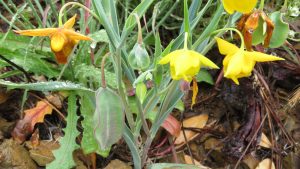
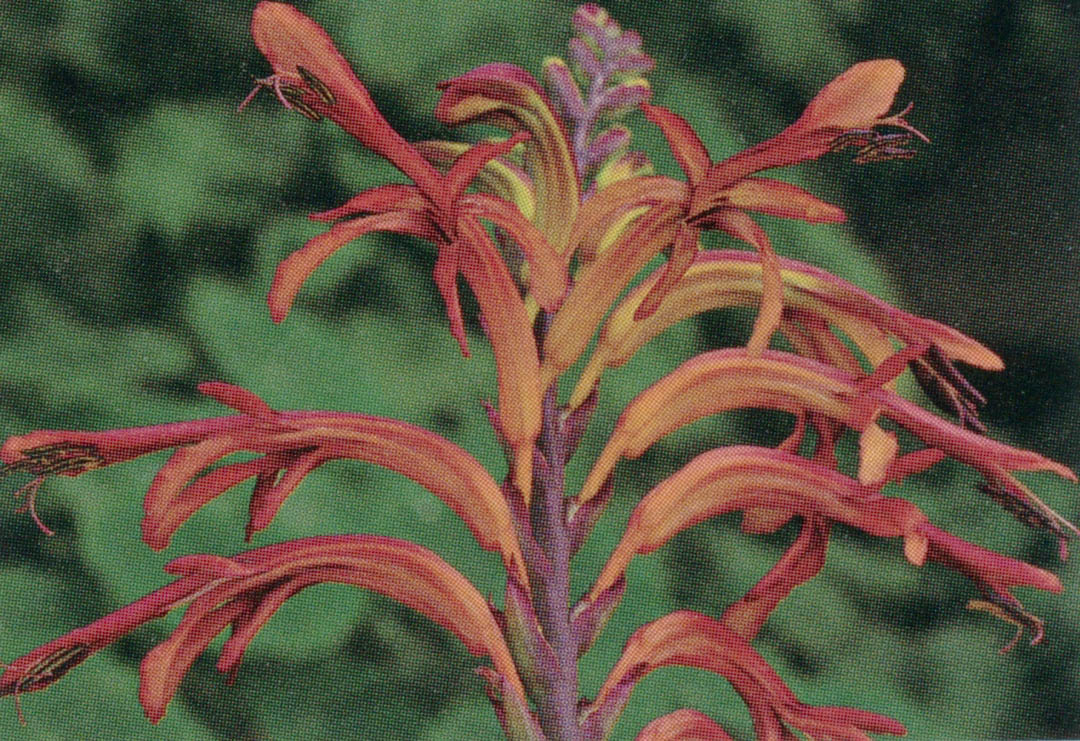
Contributor
Chasmanthe floribunda accent a narrow bed between sidewalk and fence. Photographs by David Goldberg
Though garden fashions change, the exuberant success of many familiar plants keeps them popular with amateur gardeners. Some of these plants are so willing to grow that they often appear unbidden in gardens and parks—even through cracks in the pavement. Horticulturists ignore these common plants, relating to them as plants that get in the way of rarer, or more fashionable choices. When used well, however, these common plants are regional garden treasures.
To the casual observer, Chasmanthe floribunda, ornamenting winter gardens with its fine flashes of orange or yellow, appears to be a sort of crocosmia on steroids. Though it is indeed a close relative of crocosmia, a fellow member of the iris family (Iridaceae), close inspection reveals that it is a quite different plant. The flat sprays of two- to five-foot tall leaves appear with fall rains, while crocosmia lies dormant below ground. In mid to late winter, the flower stems emerge. The three-inch long flowers consist of a curved tube ending in six spreading p...
READ THE WHOLE STORY
Join now to access new headline articles, archives back to 1977, and so much more.
Enjoy this article for FREE:
Articles: Calochortophilia: A Californian’s Love Affair with a Genus by Katherine Renz
If you are already a member, please log in using the form below.
Share:
Social Media
Garden Futurist Podcast
Most Popular
Videos
Topics
Related Posts
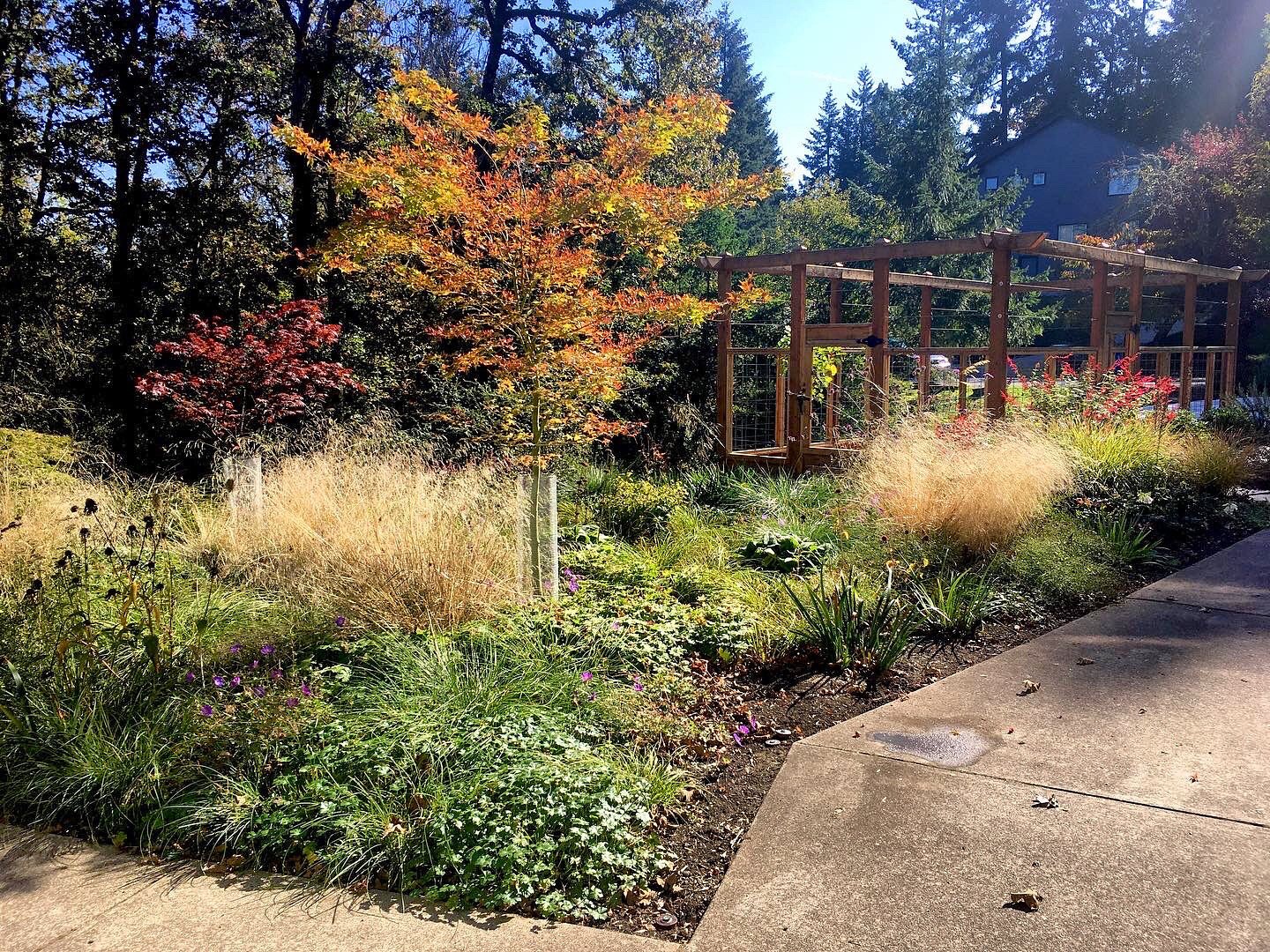
Low Maintenance Gardens – Better for Pollinators and People
Autumn 2022 “I come out every day. It’s therapy, my meditation.” Janet’s young garden transformed from overgrown, invasive plants to mostly natives. The dailiness of
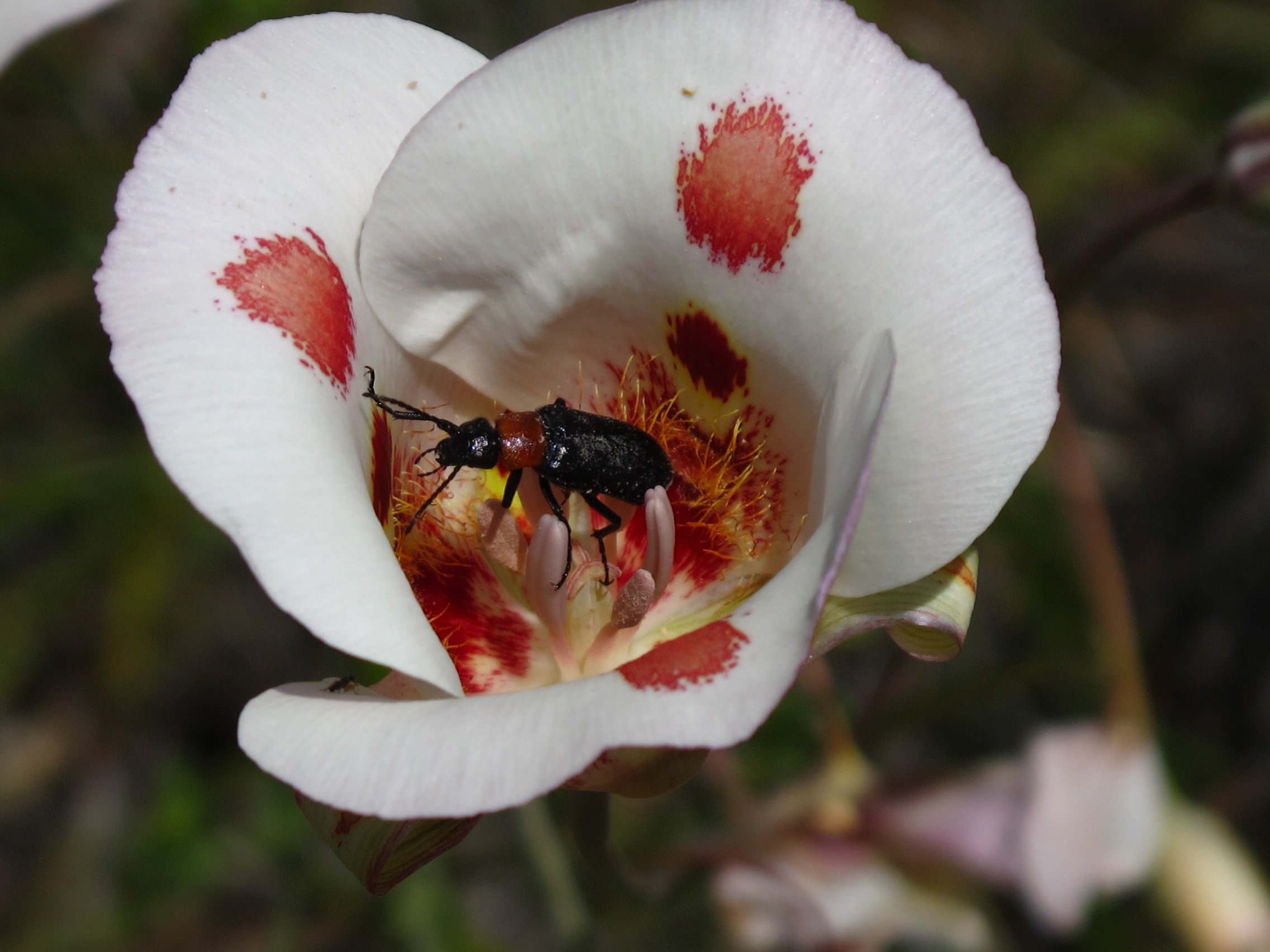
Calochortophilia: A Californian’s Love Affair with a Genus
Summer 2022 I can chart the progression of my life by Calochortus. For the last two decades, at least. As a teenage girl growing up
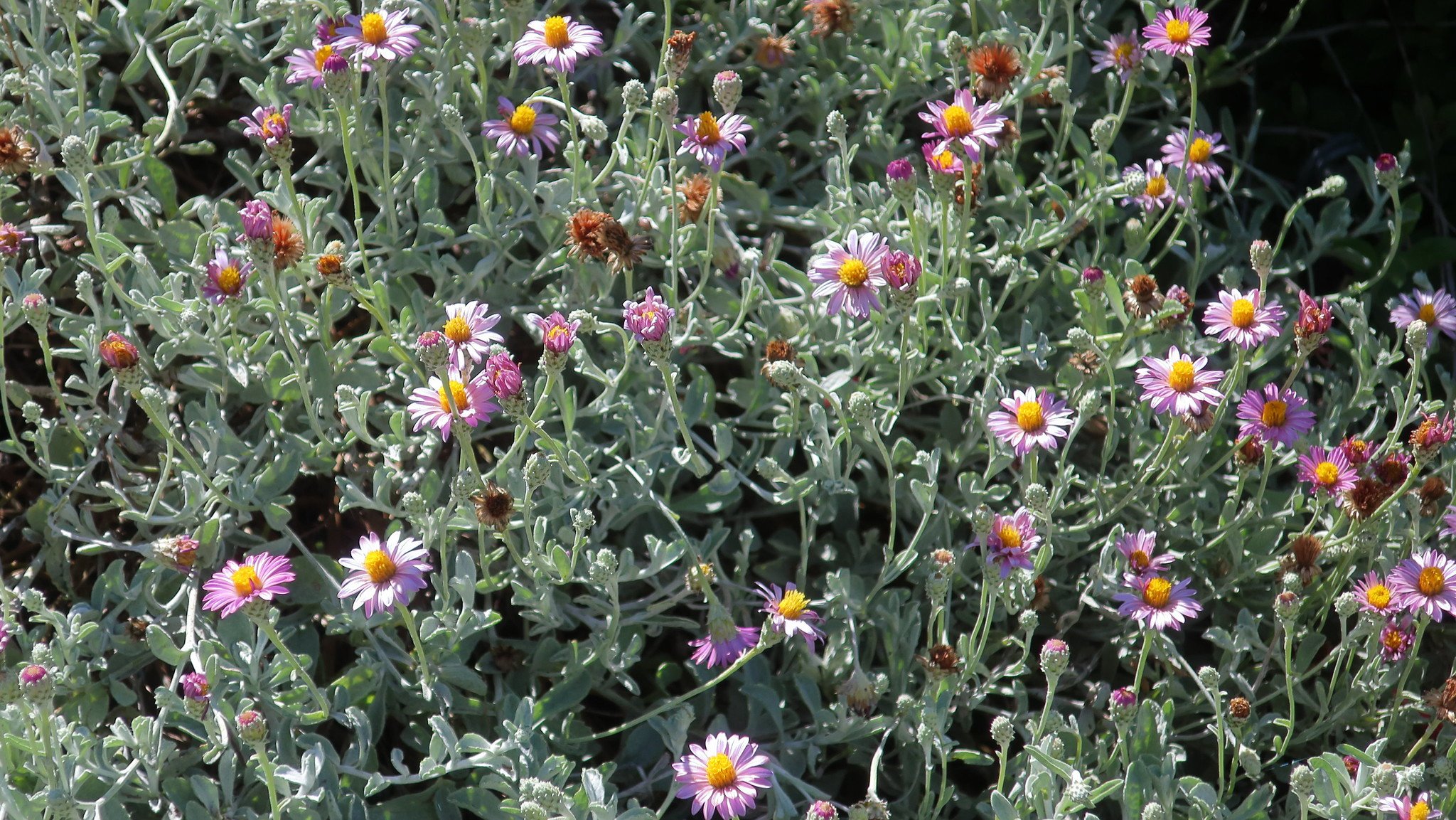
Pacific Plant People: Carol Bornstein
Spring 2022 Public gardens play a key role in demonstrating naturalistic planting design, selecting native and adapted plants for habitat, and testing techniques for reducing
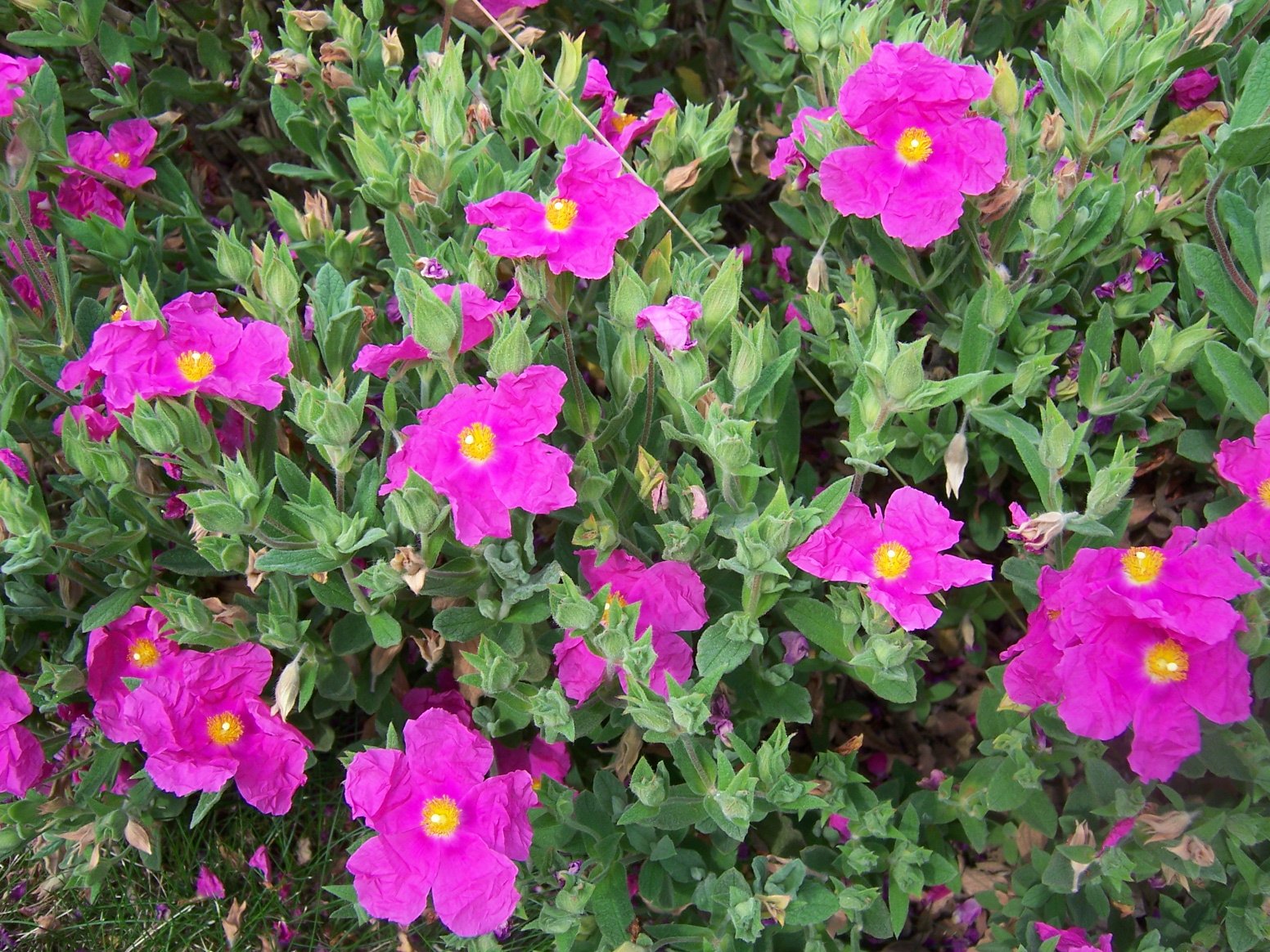
Add Year-Round Interest and Winter Blooms for Pollinators
Spring 2022 This article was created from an Interview by Merrill Jensen with Neil Bell in the Summer of 2021 for our Pacific Plant People

